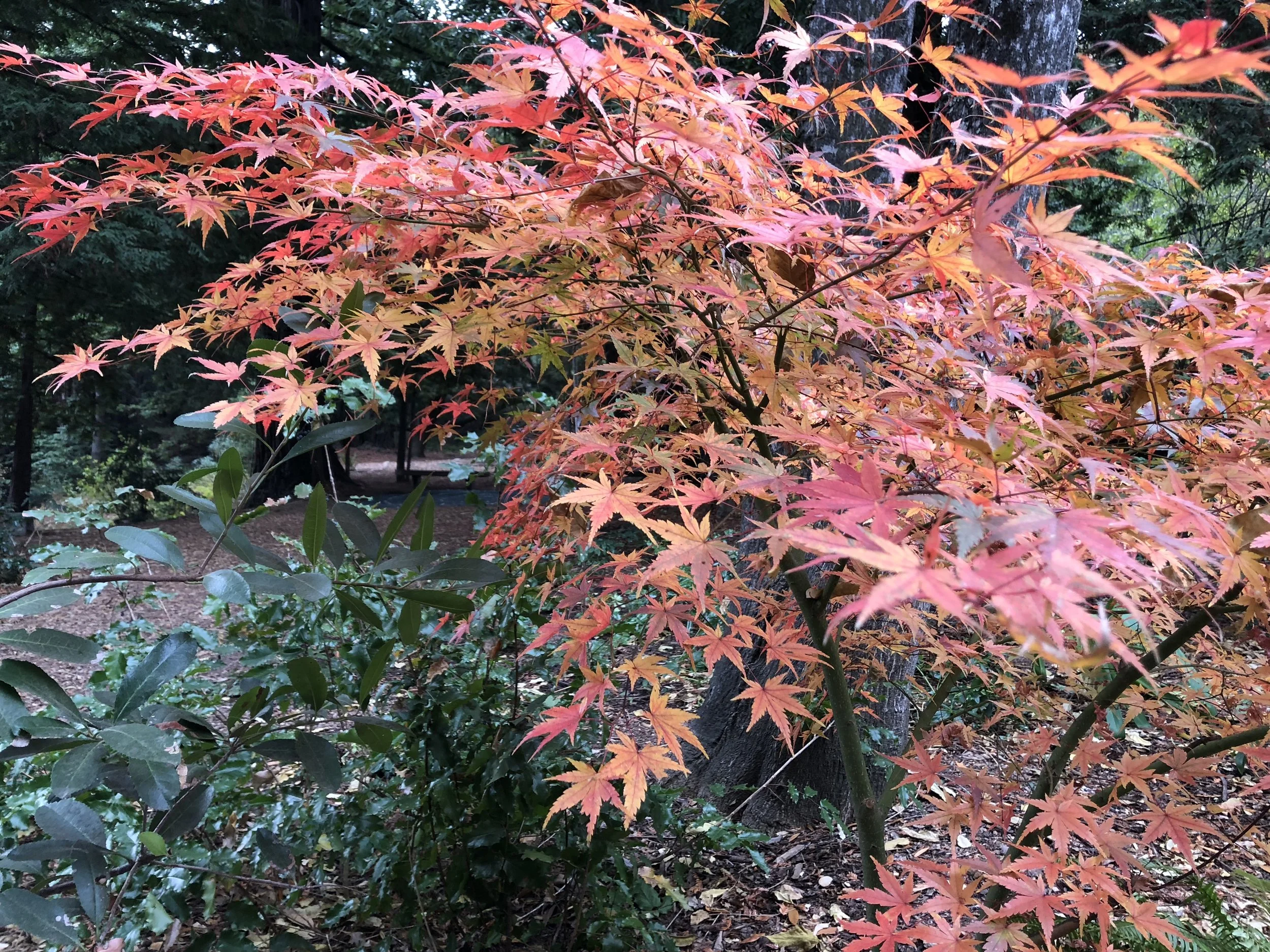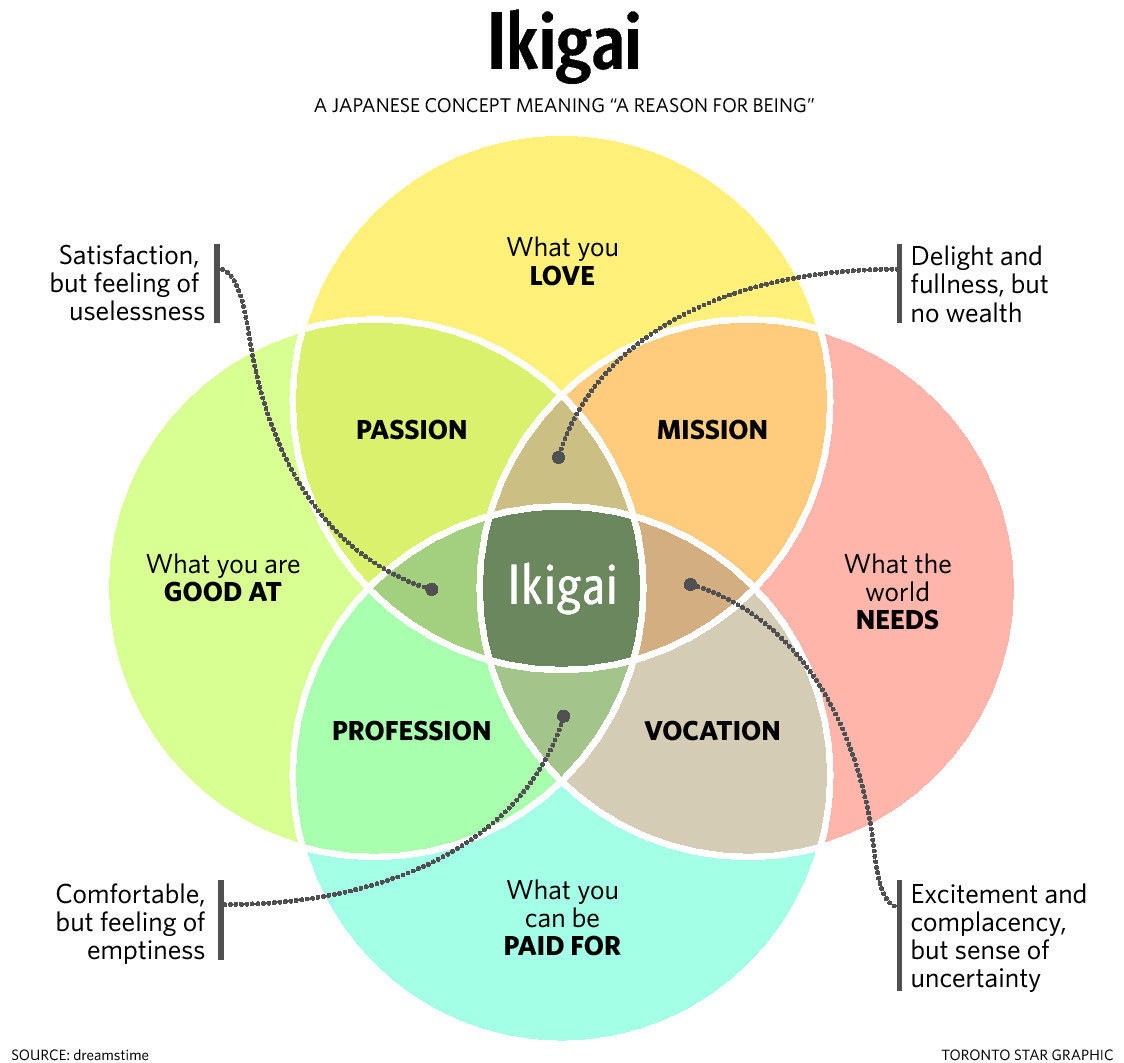In my last two posts, I have written about Shirin-Yoku or Forest Bathing and Ikigai or Raison d'Être. Today I want to tell you about two more Japanese terms or concepts that I love: Yutori and Shisa Kanko.
Yutori is a term that I first heard mentioned by Naomi Shihab Nye in an interview with Krista Tippett on her OnBeing radio podcast. In the interview, Naomi Shihab Nye, an American poet, tells the story of a class she was teaching in Japan:
I just came back from Japan a month ago, and in every classroom, I would just write on the board, “You are living in a poem.” And then I would write other things just relating to whatever we were doing in that class. But I found the students very intrigued by discussing that. “What do you mean, we’re living in a poem?” Or, “When? All the time, or just when someone talks about poetry?” And I’d say, “No, when you think, when you’re in a very quiet place, when you’re remembering, when you’re savoring an image, when you’re allowing your mind calmly to leap from one thought to another, that’s a poem. That’s what a poem does.” And they liked that.
And a girl, in fact, wrote me a note in Yokohama on the day that I was leaving her school that has come to be the most significant note any student has written me in years. She said, “Well, here in Japan, we have a concept called ‘Yutori.’ And it is spaciousness. It’s a kind of living with spaciousness. For example, it’s leaving early enough to get somewhere so that you know you’re going to arrive early, so when you get there, you have time to look around." And then she gave all these different definitions of what Yutori was to her.
But one of them was — "and after you read a poem just knowing you can hold it, you can be in that space of the poem. And it can hold you in its space. And you don’t have to explain it. You don’t have to paraphrase it. You just hold it, and it allows you to see differently." And I just love that. I mean, I think that’s what I’ve been trying to say all these years.
So how does this relate to coaching you might ask? Well, coaching is an act of self-discovery and it all starts by giving yourself space and time for inner work. There are a number of practices that people engage in which add Yutori/spaciousness to their life: some people have a meditation practice, others embrace mindfulness in whatever they do, others include more silence and solitude in their lives by starting their meals in silence, or taking a silent sensory walk in the woods every day. Others journal or declutter their personal space or just spend half an hour gazing in a square foot of their garden. It's whatever brings you space and time to wonder. I personally like to start my day by reading a poem and this is why the story from Naomi Shihab Nye resonates with me. So let me share with you this poem by Rumi that gave me Yutori this morning:
Watch the dust grains moving
in the light near the window.
Their dance is our dance.
We rarely hear the inward music,
but we are all dancing to it nevertheless,
directed by the one who teaches us,
the pure joy of the sun,
our music master.
The second Japanese term I want to introduce is Shisa Kanko translated to English as "pointing, calling, and acting". It's a kind of checklist, bringing consciousness and mindfulness to whatever you are doing, specifically when engaged in repetitive tasks. In Japan, Shisa Kanko was first used by train operators and is now widespread in industrial settings. A 1994 study by Japan Railways showed a reduction of 85% of mistakes made by conductors when using Shisa Kanko. If you travel to Japan, you will notice this pointing and calling. I find it fascinating. So again, how is this relevant to coaching, you may ask? Well, as mentioned above, coaching is an act of self-discovery. Practicing Shisa Kanko with your own behaviors, emotions, or beliefs is a good way to start noticing the habits of the mind and to bring awareness to the situation at hand. Until you notice (point) and name (call) the behavior you want to change, it's impossible to change it (act). (More about Shisa Kanko in Japan in this article by Alice Gardener.)
Do you practice Shisa Kanko in your life? Maybe you use the technique when meditating? When you label your thoughts and emotions as part of your sitting practice, you are doing a form of Shisa Kanko. When a thought or emotion arises, you notice it (point), label it (call), and let it go (act), returning to the breath or to whatever focal point you were using for your meditation. I find I am using the technique with my teenager who is learning to drive when I ask him to point, call, and act at a stop sign, a red light, a pedestrian crossing, or a freeway entrance.
So I will leave you with two questions today:
- Where do you find your Yutori?
- How do you practice Shisa Kanko in your life?
Warmly,
Anne-Marie








